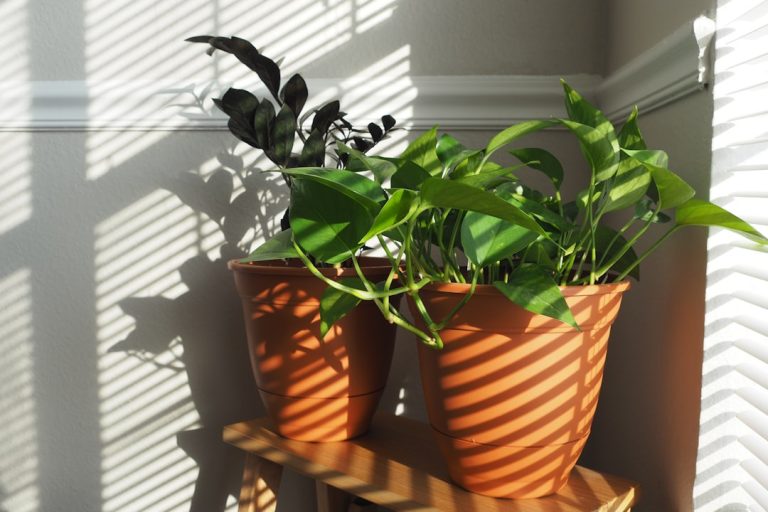Composting is a crucial aspect of sustainable gardening as it helps to reduce waste, improve soil health, and promote nutrient cycling. By composting organic materials such as kitchen scraps, yard waste, and other biodegradable materials, gardeners can create a nutrient-rich soil amendment that can be used to nourish their plants and improve overall garden health. Composting also plays a vital role in reducing the amount of organic waste that ends up in landfills, where it would otherwise contribute to greenhouse gas emissions. Instead, by composting these materials, gardeners can harness their natural decomposition process to create a valuable resource for their gardens.
Furthermore, composting helps to promote sustainable gardening practices by reducing the need for chemical fertilizers and pesticides. By enriching the soil with compost, gardeners can improve soil structure, water retention, and nutrient availability, leading to healthier plants and increased biodiversity. Additionally, composting can help to reduce erosion and runoff, as well as promote the growth of beneficial microorganisms in the soil. Overall, composting is an essential component of sustainable gardening that not only helps to reduce waste and carbon footprint but also promotes healthy, thriving gardens.
Summary
- Composting is essential for sustainable gardening as it reduces waste and enriches the soil.
- To start composting in your garden, choose a suitable location and gather organic materials like kitchen scraps and yard waste.
- The right composting method for your garden depends on factors such as space, time, and the type of materials available.
- Composting benefits soil health and nutrient cycling by improving soil structure and providing essential nutrients for plant growth.
- Do’s for successful composting include mixing green and brown materials, while don’ts involve avoiding meat and dairy products and keeping the compost moist but not waterlogged.
How to Start Composting in Your Garden
Starting a compost pile in your garden is a relatively simple process that can be done with just a few basic materials and a little bit of know-how. The first step is to choose a suitable location for your compost pile, ideally in a shaded area with good drainage. Next, gather your organic materials, such as fruit and vegetable scraps, coffee grounds, eggshells, yard waste, and other biodegradable materials. It’s important to avoid adding meat, dairy, or oily foods to your compost pile, as these can attract pests and slow down the decomposition process.
Once you have your materials, you can begin layering them in your compost pile, alternating between green materials (such as fruit and vegetable scraps) and brown materials (such as leaves and twigs). It’s important to keep your compost pile moist but not waterlogged, as the decomposition process requires a balance of moisture and air. You can also add a compost activator or accelerator to speed up the decomposition process and help create a rich, nutrient-dense compost. With regular turning and maintenance, your compost pile will gradually break down into a dark, crumbly material that can be used to enrich your garden soil.
Choosing the Right Composting Method for Your Garden
There are several different methods of composting that gardeners can choose from, depending on their space, time, and resources. One popular method is traditional composting using a bin or pile, which involves layering organic materials and allowing them to decompose over time. This method is suitable for larger gardens with ample space for a compost pile and is relatively low-maintenance once established. Another option is vermicomposting, which involves using worms to break down organic materials into nutrient-rich castings. This method is ideal for smaller gardens or indoor spaces and can produce high-quality compost relatively quickly.
For gardeners with limited space or time, there are also options such as tumbling composters or composting bins that can be turned easily to speed up the decomposition process. These methods are convenient for urban or small-scale gardeners who may not have the space for a traditional compost pile. Additionally, there are also bokashi composting systems that use anaerobic fermentation to break down organic materials quickly and efficiently. Ultimately, the right composting method for your garden will depend on your specific needs and resources, but all methods can contribute to sustainable gardening practices.
The Benefits of Composting for Soil Health and Nutrient Cycling
| Benefits of Composting | Soil Health and Nutrient Cycling |
|---|---|
| 1 | Improves soil structure |
| 2 | Increases soil organic matter |
| 3 | Enhances soil fertility |
| 4 | Reduces soil erosion |
| 5 | Suppresses plant diseases |
| 6 | Promotes beneficial soil microorganisms |
Composting offers numerous benefits for soil health and nutrient cycling in gardens. When organic materials are composted, they break down into a rich, dark substance that is full of essential nutrients such as nitrogen, phosphorus, potassium, and micronutrients. This nutrient-dense compost can then be added to garden soil to improve its structure, water retention, and nutrient availability. By enriching the soil with compost, gardeners can promote healthy plant growth and increase biodiversity in their gardens.
Composting also plays a crucial role in nutrient cycling by returning organic matter to the soil in a form that can be readily used by plants. This helps to reduce the need for chemical fertilizers and promotes a more sustainable approach to gardening. Additionally, composting can help to improve soil structure by increasing its ability to hold water and nutrients, reducing erosion and runoff, and promoting the growth of beneficial microorganisms. Overall, composting is an essential practice for maintaining healthy soil and promoting sustainable gardening practices.
Composting Do’s and Don’ts: Tips for Successful Composting
There are several key do’s and don’ts to keep in mind when it comes to successful composting. Firstly, it’s important to do regularly turn your compost pile to aerate it and promote decomposition. This helps to ensure that all the organic materials are breaking down evenly and efficiently. It’s also important to keep your compost pile moist but not waterlogged, as too much moisture can slow down the decomposition process. Additionally, adding a balance of green (nitrogen-rich) and brown (carbon-rich) materials will help to create a well-balanced compost pile.
On the other hand, there are several things that should be avoided when composting. It’s important not to add meat, dairy, or oily foods to your compost pile, as these can attract pests and slow down decomposition. Additionally, it’s best to avoid adding diseased plants or weeds with seeds to your compost pile, as this can spread disease or lead to weed growth in your garden. By following these do’s and don’ts of composting, gardeners can ensure successful decomposition and create high-quality compost for their gardens.
Using Compost to Improve Soil Fertility and Plant Health

Once you have created nutrient-rich compost from your organic materials, you can use it to improve soil fertility and plant health in your garden. Adding compost to garden soil helps to improve its structure by increasing its ability to hold water and nutrients while also promoting beneficial microbial activity. This leads to healthier plants with stronger root systems and increased resistance to pests and diseases. Additionally, using compost in your garden can help to reduce the need for chemical fertilizers and promote a more sustainable approach to gardening.
Compost can be used in various ways in the garden, such as mixing it into planting holes when transplanting or top-dressing existing plants with a layer of compost. It can also be used as a mulch to help retain moisture in the soil and suppress weed growth. Furthermore, incorporating compost into potting mixes for container plants can help provide essential nutrients and improve water retention. Overall, using compost in the garden is an effective way to improve soil fertility and promote healthy plant growth while reducing the need for synthetic fertilizers.
Composting as a Sustainable Practice for Reducing Waste and Carbon Footprint
Composting plays a crucial role in sustainable gardening by reducing waste and carbon footprint. By diverting organic materials from landfills where they would otherwise contribute to greenhouse gas emissions, gardeners can harness their natural decomposition process to create a valuable resource for their gardens. This not only reduces the amount of waste ending up in landfills but also helps to mitigate climate change by reducing methane emissions from decomposing organic matter.
Furthermore, by using compost in the garden instead of chemical fertilizers, gardeners can reduce their reliance on synthetic inputs that contribute to carbon emissions during production and application. This promotes a more sustainable approach to gardening that is beneficial for both the environment and overall garden health. Additionally, by promoting healthy soil and plant growth through composting, gardeners can contribute to increased biodiversity and ecosystem resilience. Overall, composting is an essential sustainable practice that helps reduce waste and carbon footprint while promoting healthy gardens and a healthier planet.
If you’re interested in creating a sustainable garden, you might also want to learn about the magic of heat pumps and how they can keep your home comfortable. Check out this article to understand the benefits of heat pumps and how they can contribute to a more eco-friendly home.
FAQs
What is composting?
Composting is the process of breaking down organic materials, such as food scraps, yard waste, and paper, into a nutrient-rich soil amendment called compost. This natural process is carried out by microorganisms, such as bacteria and fungi, and larger organisms like earthworms and insects.
Why is composting important for a sustainable garden?
Composting is important for a sustainable garden because it helps to reduce waste, improve soil health, and promote plant growth. By diverting organic materials from landfills, composting reduces methane emissions and conserves valuable landfill space. Additionally, compost adds essential nutrients to the soil, improves soil structure, and increases water retention, leading to healthier and more productive plants.
What can be composted?
A wide variety of organic materials can be composted, including fruit and vegetable scraps, coffee grounds, eggshells, yard waste (such as grass clippings and leaves), paper products (like shredded newspaper and cardboard), and plant-based materials (such as straw and wood chips). It’s important to avoid composting meat, dairy, and oily foods, as well as pet waste and diseased plants.
How do you start composting?
To start composting, you’ll need a compost bin or pile, a mix of green (nitrogen-rich) and brown (carbon-rich) materials, and some water. Layer the materials in the bin or pile, keeping it moist but not waterlogged, and turn it regularly to aerate the compost. Over time, the materials will break down into rich, dark compost that can be added to your garden soil.
How long does it take to make compost?
The time it takes to make compost can vary depending on factors such as the size of the compost pile, the materials used, and the environmental conditions. In general, it can take anywhere from a few months to a year for organic materials to fully decompose into compost. Regularly turning the compost pile and maintaining the right balance of green and brown materials can help speed up the process.


